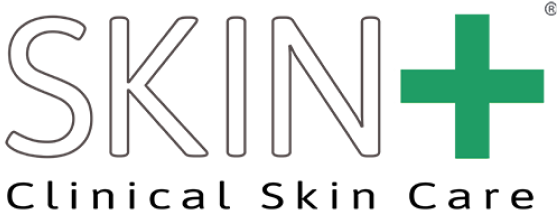Short version: supplements can’t replace acne treatment, but the right oral supplements and dietary supplements can support the immune system, calm skin inflammation, and help rebalance hormone levels while your topical treatments do the pore-clearing heavy lifting.
If you’re dealing with severe acne, scarring risk, or you’re already on prescription medications, coordinate care with a board-certified dermatologist. And because high doses of certain nutrients can backfire, always talk dosing and drug administration with your healthcare provider.
Acne 101 (quick, useful, not boring)
Acne vulgaris is not “just a teen thing.” It’s a chronic, inflammatory condition that can follow us into adulthood. Here’s the simple chain:
- Sebaceous glands ramp up oil production (sebum).
- Inside hair follicles, dead skin cells get sticky (slow skin cell turnover) and form a plug.
- Acne-causing bacteria (C. acnes) join the party.
- The immune system reacts → skin inflammation → whiteheads, blackheads, papules, pustules, and sometimes cystic acne.
Your acne symptoms and acne severity can swing with hormonal imbalances (hello menstrual cycle), stress levels, and even your skin type.
Topical medications—like benzoyl peroxide, retinoic acid (vitamin A derivatives), and gentle acids—are proven topical treatments that speed up skin cell turnover, unclog pores, and reduce bacteria. Adding targeted acne supplements can make a significant difference by lowering oxidative stress (free-radical overload), supporting immune function, and helping address root causes like gut health or hormone imbalances.
What supplements can (and can’t) do
Supplements play a supporting, not starring role. Think: internal levers that help your body do what it already knows how to do to reach clearer skin and overall skin health.
- They can: lower inflammation, tame excess sebum production, support energy production and nervous system balance, and fill nutrient gaps that slow healing.
- They can’t: replace cleansing, consistent topical treatments, a balanced diet, or seeing a dermatologist when you need one.
Core Supplements (anyone with acne can consider)
Zinc Monomethionine (OptiZinc): calm the chaos
Zinc is an essential nutrient with a crucial role in immunity and healing. Many with acne-prone skin run low. This form (zinc monomethionine) is highly bioavailable and can help with inflamed lesions.
- How it helps: anti-inflammatory effects; supports the immune system against C. acnes.
- How much: many studies land around 50–100 mg/day. Don’t exceed 100 mg/day unless your healthcare provider directs; too much can deplete other minerals.
- Pro tip: OptiZinc is what we recommend and it includes copper—helpful since zinc can lower copper over time.
- Use notes: take with food to avoid nausea; great during active flares, then taper once you’re clear.
Omega-3 Fish Oil: inflammation tamer (choose the good stuff)
Fish oil is rich in fatty acids (EPA + DHA) with strong anti-inflammatory effects that can help shorten inflammatory flares.
- Quality matters: choose molecularly distilled/pharmaceutical-grade to cut contaminants and oxidation (oxidized oils = more inflammation).
- Dose target: 1,000–1,700 mg/day of combined EPA + DHA; aim for ~2:1 EPA:DHA.
- Smart label checks: EPA and DHA listed separately, enteric-coated caps to reduce fishy burps, and vitamin E (mixed tocopherols) as a powerful antioxidant to protect against oxidation.
- Bonus benefits: supportive for heart, brain, joints, and hormone levels—a good option for hormonal acne patterns.
- Safety: In the United States, follow label directions; don’t exceed 2,500 mg omega-3s daily unless your clinician advises.
Vitamin D3: the not-exactly-a-vitamin skin MVP
D3 acts like a fat-soluble vitamin and a hormone—big health benefits for bones, mood, and immunity.
- Skin story: supports T-cells (defense vs. C. acnes), helps balance oil production and shedding, and can calm inflammation.
- Check levels: vitamin D levels (25-OH D) are worth testing—vitamin D deficiency is common.
- Vitamin D supplements: talk dose with your healthcare provider; more ≠ better with fat-soluble nutrients.
- Good sources of vitamin D: fatty fish, egg yolks, and some orange juice (check labels). Sun helps, but sunscreen and skin safety come first.
Magnesium Glycinate: the chill mineral
Magnesium supports the nervous system, steadies blood sugar, and participates in steroid hormone synthesis (progesterone, estrogen, testosterone levels).
- Why it helps skin: smoother stress response, better sleep (GABA support), steadier hormones → fewer stress-driven acne breakouts.
- Best form: magnesium glycinate/bisglycinate—gentle, absorbable, soothing.
- When: evening is lovely if sleep support is a goal.
The Gut–Skin Connection (microbiome matters)
Your gut microbiome influences systemic inflammation and the immune system—which means gut health shows up on your face.
- Beneficial effects: a balanced microbiome helps regulate immune signaling and barrier function, lowering the development of acne flares.
- Daily support: fiber-rich foods and fermented options, plus targeted probiotics/prebiotics if your healthcare provider agrees.
Targeted Add-Ons (case by case)
B Vitamins & Pantothenic Acid (B5)
The vitamin B complex supports energy production and stress resilience. Pantothenic acid (B5) is often used for oil balance in acne treatment; some people see a significant reduction in shine and clogged pores.
- Important role: B5 may support lipid metabolism in the skin; B6 can be a good option around the menstrual cycle for some.
- Caution: very high doses of vitamin B12 can aggravate acne in some skin types—don’t megadose without guidance.
Vitamins C & E (antioxidant tag team)
Vitamin C supplements and vitamin E fight free radicals and oxidative stress, supporting healing and barrier lipids in acne-prone skin.
- Powerful role: helps counter inflammation from environmental stressors and supports overall skin health.
- Food sources: citrus fruits (vitamin C), almonds/sunflower seeds (vitamin E).
Vitamin A (not the megadose kind)
Vitamin A is an essential vitamin for healthy turnover, but it’s a fat-soluble vitamin—so skip DIY megadosing. Topical retinoic acid/retinoids remain first-line for the treatment of acne. If oral vitamin A is considered, do it with a healthcare provider only.
Herbal helper: Vitex agnus-castus (chasteberry)
Sometimes used for cycle-related hormone imbalances. May support luteal-phase rhythm and PMS symptoms that correlate with hormonal acne. Not for everyone; talk to your clinician—especially if you take prescription medications or have hormone-sensitive conditions.
Food First: Building a Skin-Smart Plate
Supplements help, but the base is a balanced diet that calms inflammation and supports hormones.
-
Load up on:
- Fatty fish (EPA/DHA fatty acids)
- Cruciferous vegetables (broccoli, kale, cauliflower)
- Whole grains (fiber for the gut microbiome)
- Citrus fruits (vitamin C)
- Consider your response to: dairy products—some people notice more acne breakouts; track your personal pattern.
- Hydrate: it supports barrier function and healing for healthy skin and overall health.
Build-Your-Plan Blueprint (simple + safe)
- Lock the basics: gentle cleanse, daily sunscreen, proven topicals (benzoyl peroxide + a retinoid like retinoic acid).
-
Pick your stack (key ingredients):
- Zinc monomethionine (with copper)
- Fish oil (EPA/DHA)
- Vitamin D supplements (if low)
- Magnesium glycinate
- Optional: pantothenic acid, vitamin C + vitamin E, probiotic, or vitex agnus-castus (case-by-case)
-
Match to your pattern:
- Oily/excess sebum production → consider B5, zinc, omega-3s
- Cycle-related flares → magnesium, omega-3s, possibly B6 or vitex agnus-castus
- Low mood/winter skin → check vitamin D levels
- Avoid megadoses: more isn’t better—especially with fat-soluble vitamins.
- Check in at 8–12 weeks: look for a significant difference in texture, oil, and flares. No change? Re-evaluate with your healthcare provider or a board-certified dermatologist.
FAQs (because you’ll ask, and I love that)
“What are the best vitamins for acne?”
Common winners: zinc, vitamin D, vitamin C, vitamin E, selective B vitamins like B5—plus mineral supplements like magnesium. The best supplements depend on your pattern and labs.
“Can supplements replace my topicals?”
Nope. They’re teammates, not twins. You’ll get the beneficial effects by pairing internals with topical medications.
“How long until I see clearer skin?”
Many see early wins in 4–6 weeks, with bigger shifts by 8–12 weeks, especially when diet, sleep, and stress are part of the plan.
“Is this safe if I’m pregnant or trying?”
Always run your plan by your healthcare provider first—especially fat-soluble nutrients and herbs.
Pore-Clogging Watchlist (for your skincare, not your supplements!)
While you dial in nutrition and supplements, make sure your products aren’t undoing your progress. Some formulas hide sneaky comedogens that can worsen the formation of acne. Use our Skin+ Ingredients Checker to scan labels fast:
Final note & disclaimer
This guide is for education, not diagnosis or individualized medical advice, and it does not create a patient–provider relationship. In the United States, supplement quality varies—buy from reputable brands and look for third-party testing seals (e.g., USP, NSF, Informed Choice, IFOS for fish oil). Always follow product labels and partner with your healthcare provider—ideally alongside a board-certified dermatologist—before starting, stopping, or changing any supplement, medication, or dose.
- Not evaluated by the FDA: Statements here haven’t been evaluated by the Food and Drug Administration. Products mentioned aren’t intended to diagnose, treat, cure, or prevent any disease.
-
Safety & interactions: Supplements can interact with medications and conditions. Examples (not exhaustive):
- Fish oil/Vitamin E: May increase bleeding risk with anticoagulants/antiplatelets; ask about holding prior to procedures.
- Vitamin A/retinoids: Avoid high doses if pregnant/trying to conceive; do not combine with isotretinoin unless supervised.
- Vitamin D3: Monitor 25-OH D and calcium if supplementing; caution with hypercalcemia/parathyroid disorders.
- Zinc: Long-term high doses can deplete copper—choose balanced formulas and consider monitoring if using >8–12 weeks.
- Magnesium (glycinate/bisglycinate): Caution with kidney disease; minerals can reduce absorption of some antibiotics and thyroid meds—separate by 2–4 hours.
- B vitamins: Very high-dose B12 may worsen acne in some; use large doses only with clinical guidance.
- Vitex agnus-castus: May affect hormone therapies/contraceptives and dopaminergic meds; avoid with hormone-sensitive conditions unless cleared by your clinician.
- Allergies: Fish oil may not be suitable for fish/shellfish allergies—confirm source.
- Special populations: Extra caution if you’re pregnant, breastfeeding, under 18, immunocompromised, or managing chronic illness.
- Quality & storage: Check expiration dates, avoid heat/light, and don’t use products that smell rancid (especially oils).
- Stop and call your clinician if you experience side effects or worsening symptoms. For emergencies, call 911 (or your local emergency number).
- Results vary: Improvements often take 8–12 weeks and are not guaranteed. Use supplements as part of a broader plan (skincare, lifestyle, and medical care as needed).
- No endorsement implied: Brand examples are for illustration, not paid endorsement; formulations change—recheck labels.
- Time-sensitive: Information reflects knowledge at publication and may change with new research or guidance.
Thoughtful choices plus consistent routines—and care coordinated with your healthcare team—are a powerful path to clear skin and overall skin health.


